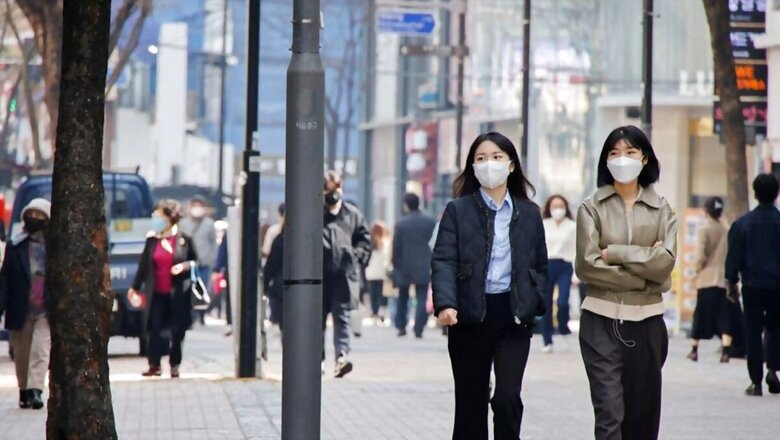
views
Having a child is a woman’s choice. At least that is the general notion in the developed societies where her choice is largely governed by factors such as health, education, career and finances. In South Korea, a majority of women have been opting for a child-free life, with the country continuing to see the world’s lowest birth rate, beating its own record year after year.
The average number of expected babies for a South Korean woman during her reproductive life fell to a record low of 0.72 from 0.78 in 2022, data from Statistics Korea showed on Wednesday.
That is far below the rate of 2.1 per woman needed for a steady population and well behind the rate of 1.24 in 2015 when concerns about issues such as the cost of housing and education were lower.
Grim Data
According to a survey of working women aged 25 to 45, 62.2% of respondents answered that they have no plan to have any children in the future, the results of the Ipsos survey were released on Tuesday as quoted by the Korean Economic Daily.
South Korea has been the only Organisation for Economic Co-Operation and Development (OECD) member since 2018 with a rate below 1, defying the billions of dollars spent by the country to try to reverse the trend that led the population to decline for a fourth straight year in 2023, as quoted by Reuters.
If this trend continues, the South Korean population is estimated to be halve by the year 2100.
South Korea has previously projected its fertility rate is likely to fall further to 0.68 in 2024. The capital Seoul, which has the country’s highest housing costs, had the lowest fertility rate of 0.55 last year.
Double-income couples with no children made up 50.2% of households in 2022, which is above half for a second straight year with 50.4% the previous year, according to data released by Statistics Korea in December last year, as quoted by the Korean Economic Daily.
What are the Challenges?
The country also has the worst gender pay gap among the OECD countries, as Korean women bring home about two-thirds of the income than men.
“Women typically can’t build on their experience to climb higher at workplaces because they are often…the only one doing the childcare (and) often need to rejoin the workforce after extended leaves,” said Jung Jae-hoon, a professor at Seoul Women’s University, as quoted by Reuters.
According to a report by BBC, both men and women are entitled to a year’s leave during the first eight years of their child’s life. But in 2022, only 7% of men used their leave compared to 70% of new mothers.
Koreans are notorious for working long hours, which makes it difficult for them to plan babies in the desire for better work opportunities, which will provide better salaries and improve their lifestyle.
In fact, a marriage is seen as a pre-requisite to have babies in South Korea but that rate is also declining in the country.
The cost of private education has also been seen as an impediment to raise a child in South Korea.
A 2022 study found that only 2% of parents did not pay for private tuition, while 94% said it was a financial burden.
A survey also shows that the average cost to raise a child for 19 years since their birth is 252.1 million won ($189,335.34), 16% higher than last year when a similar survey was conducted.
Like many of the South Asian countries, South Korea does not allow gay marriages, and single women are banned from using the donor’s sperm to conceive.
What is the Government Doing?
Demographics show the number of working age people will be halved in the next 50 years, and nearly half the population will be older than 65 years.
The Korean politicians are scared and have declared it as a “national emergency”.
Data, as quoted by BBC, shows successive governments have spent nearly 379 trillion KRW ($286 billion) in the last 20 years to lure people to have more children. Couples who have children were incentivised with cash, subsidised housing and free taxis, hospital bills and IVF treatment of the married couples were covered by the government.
According to the Korean Economic Daily, the Korean government earmarked 50.4 trillion won ($37.8 billion) to boost the country’s low fertility rate last year versus 2 trillion won in 2005.
Not just South Korea, Japan also said on Tuesday that its birth rate in 2023 fell for an eighth straight year to a fresh record low.
Japan’s fertility rate hit a record low of 1.26 in 2022, while China recorded 1.09, also a record low.


















Comments
0 comment